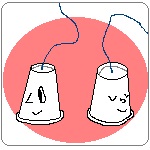風鈴さんの おぼえた日記 - 2023年12月20日(水)
| 26 | 27 | 28 | 29 | 30 | 1 | 2 |
| 3 | 4 | 5 | 6 | 7 | 8 | 9 |
| 10 | 11 | 12 | 13 | 14 | 15 | 16 |
| 17 | 18 | 19 | 20 | 21 | 22 | 23 |
| 24 | 25 | 26 | 27 | 28 | 29 | 30 |
| 31 | 1 | 2 | 3 | 4 | 5 | 6 |

この日記をフォローしているユーザ
この日おぼえたフレーズ(英語・中国語・ハングル)
おぼえた日記
自己表現のためのフランス語 mercredi 20 décembre
Leçon 33 Raconter son passé
過去の自分を語る(復習)
半過去形(昔のことを思い出しながら話す)
👩 Quand j’étais petit,
je voulais être chanteuse. Et toi?
👨 Moi, je voulais être footballeur.
👩 En 2010, j’avais 8 ans
et j’habitais a Paris. Et toi ?
👨 Moi, j’avais 6 ans et j’habitais à Nagano.
🍁 半過去形
▶ 半過去は、「その時〜していた。」「〜だった。」など、過去において継続された動作、状態の描写や習慣を表します。(~していた)
▶ 複合過去は一点を表し、半過去は継続や習慣、描写などを表します。
カメラにたとえると、複合過去はスチルカメラがシャッターを押すように1点の過去を「カシャ」と撮ります。~した(完了している)
一方、半過去はビデオカメラの映像のように、過去の状態、描写を映し出していきます。
Quand j’etais petite, je voulais être chanteuse.
J’étais petite 小さかった je voulais être なりたかった
→ 過去のある時点で継続していた状態
En 2020, j’avais 8 ans et j’habitais à Paris.
j’avais 8 ans 8歳だった j’habitais 住んでいた
→ そのとき(=2010年)に続いていた状態
複合過去形では、「~した」終わったことがイメージできるように訳す、半過去形では、「~していた」「~だった」のように、そのときに続いていたことがイメージできるように訳される。
◦ 完了の過去、が複合過去形
◦ 継続・習慣の過去、が半過去形
📚 半過去形の活用
半過去の作り方は、直説法現在1人称複数「nous」から、語幹の「-ons」を除いて、語尾に -ais, -ais, -ait, -ions, -iez, -aient を付けます。
▶ habiter [abiteアビテ] 住む 複合過去 j’ai habité 半過去 j’habitais [a.bi.tɛ]
半過去形の活用語尾 住んでいた
J’habitais à Hakodate. [a.bi.tɛ]
Tu habitais à Akita. Il habitait à Iwate. [a.bi.tɛ]
Nous habitions à Utsunomiya. [a.bi.tjɔ̃]
Vous habitiez à Mito. [a.bi.tje]
Ils habitaient à Takasaki. [a.bi.tɛ]
▶ être [εtr] ~である 複合過去 j’ai été 半過去 j’étais [e.tɛ]
小さかった
J’étais petit(e). Tu étais petit(e). [e.tɛ]
Il était petit(e). Elle était petite. [e.tɛ]
Nous étions petit(e)s. [e.tjɔ̃]
Vous étiez petit(e)(s). [e.tje]
Ils étaient petits. [e.tɛ]
Elles étaient petites. [e.tɛ]
※ 現在形のときと同じく -ent は発音しない
🎅 練習
①小さかったとき、私は歌手になりたかった。
Quand j’étais petite, je vouldais être chanteur.
②小さかったとき、私はパティシエになりたかった。
Quand j’étais petite, je vouldais être pâtissier.
●patissier(ère) [pɑtisje, εːrパティスィエ、パティスィエール] パティシエ
③私は22歳で、横浜に住んでいました。
Moi, J’avais 23 ans et j’habitais à Yokohama.
🛀 今日のひとこと
C’était écrit. それは書かれていた
●écrit [ekri] adj. écrire の過去分詞 書かれた
運命の定まった、宿命的な(=fatal)
C’était écrit. それが定めだったのだ。
運命だった、避けられなかった
ラジオ英会話 Lesson 173 発言タイプ:これから⑤
決める(4)― 決意表明 + α
I’m going to be a teacher no matter what it takes □.
何が何でも、私は教師になるつもりです。
●be going to ~ ~するつもり(意図・決意表明)
※ will と be going to ~ の違い
・'will' について
You use 'will' when making predictions about the future. Also you use ’will' when you are talking about your own intentions.
・'be going to'について
You use 'be going to' when referring to an event that you think will happen very soon.
Also you use 'be going to' when you are talking about your own intentions and someone else's intentions.
将来的に何かをやると表明する場合は、will も be going to もどちらも使える。ただ、遠い将来ではなく時間的により近い未来や、具体的な計画がある場合は be going to を使ってそれを示す。
●no matter what / how たとえ何があろう(~しよう)とも
No matter 問題ない、大したことない
![]() /english/phrase/283904
/english/phrase/283904
I’ll master English no matter long it takes.
私はどれだけ長くかかろうと英語をマスターします。
I won’t give up no matter what happens.
私は何が起ころうがあきらめません。
I’ll follow you whatever you go.
あなたがどこに行こうが、私はあなたについていきます。
I will say no whatever you ask something of me.
あなたがいつ何を頼んでも、私はいいえと言いますよ。
●wh 語 + ever 何が~であろうとも(譲歩)
ever = at any time いつのことでもいいのですが(選択の提示)
※ whatever 名詞節(目的語)と副詞節(単独)になる
Whatever may happen, I will trust you.
何が起ころうとも、あなたを信じている(単独)
no matter what に置き換え可能
※ no matter what 名詞節の働きはない(強調)
You can eat whatever you like at the party.
あなたはそのパーティーで何でも好きな物を食べることができる
他動詞のeatは、食べる対象となる名詞を後に繋げます。
whateverを付ける事で「何でも」ということになります。
この名詞節的な使い方の場合はno matter whatは使えません。
I’ll do that (even) if it’s the last thing I do!
何が何でも、私はそれをやります!
I’ll do that (even) if it kills me!
それがどれほど大変でも、私はそれをやります!
●even if たとえ~でも、たとえ~としても
If it’s the last thing I do それが私が(人生で)行う最後のことであっても
→ 何が何でも the last thing いちばん最後のこと
●if it kills me それで死ぬような目にあっても















